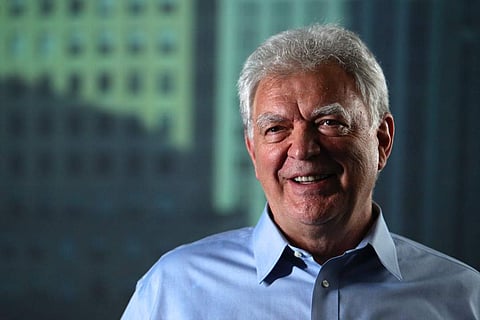

The hotel bustles with people and among them, one stands out. It will surprise even the most observant that this smiling, tower of a man has been taken hostage more than once, dealt with threats and still lives life with the confidence and understanding that very few possess. Dr George Kohlrieser is an organisational psychologist, an author and a renowned management professor from International Institute for Management Development (IMD), Switzerland.
In Chennai, to attend a two-day workshop on High-Performance Leadership organised by LIBA, we catch up with Dr Kohlrieser and talk about why communication is essential to good leadership and how taking risks can have positive outcomes. Excerpts:
You were a hostage negotiator for nearly 40 years. What pushed you towards teaching?
I was initially into meditation until I was held hostage four times. Through that trajectory of events, I was able to connect that being a good negotiator means you're a leader. It became easier to migrate to conflict management and mediation in various organisations. Then I was invited to be a faculty member at IMD and I continue to develop the whole leadership domain there.
How closely are hostage negotiation and leadership linked?
An important aspect of hostage negotiation is to change the mindset of a hostage taker to give up their weapons and hostages and surrender. What a hostage negotiator has to do is create a bond and through that understand the trigger for the incident. In 95% of the cases, the hostage takers give up their weapons. Leaders do not even come close to that level of effectiveness, but what we're basically teaching is how to give a closer success rate to that 95%.
Do you think psychology and leadership development should be taught in school?
Yes, it is important to teach youngsters this. To be a good leader you have to be able to deal with emotions. There has to be a bit of psychology in every leader. To some it comes naturally, while others attend training programmes to learn it. One of the greatest weaknesses in leadership training is that we teach the technique of leadership without the ‘person affect’, which is what I do as a person that affects another person.
How deeply do your workshops impact people?
They learn the technique of hostage negotiation, of asking questions, of being able to paraphrase and a really deep listening. When they apply this in their life it automatically impacts the way they even deal with their spouses, their kids, friends and even their personal life. Many leaders think that the way to change behaviour is to tell people what to do. That's the worst way. If you're not inspiring, you're not leading.
